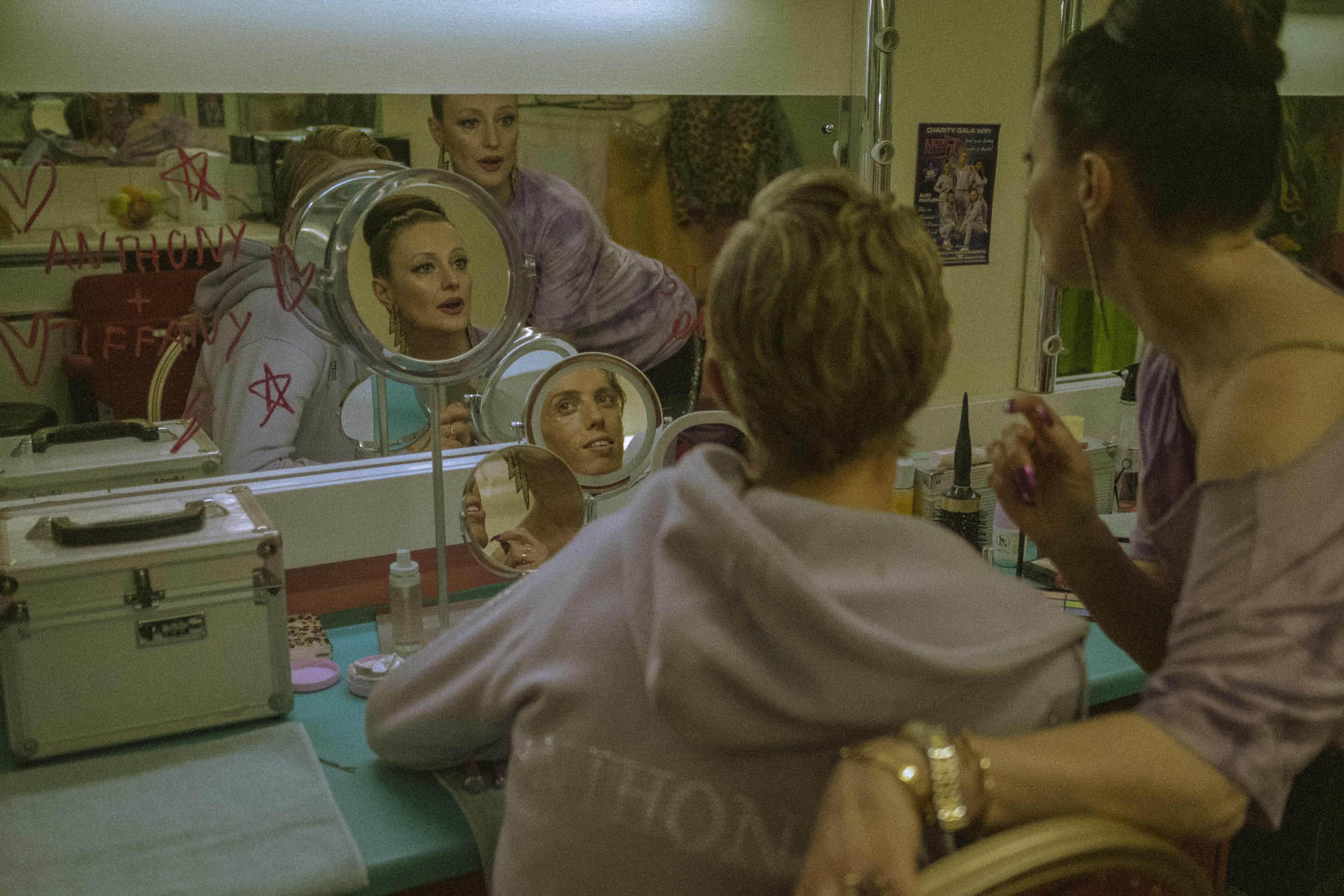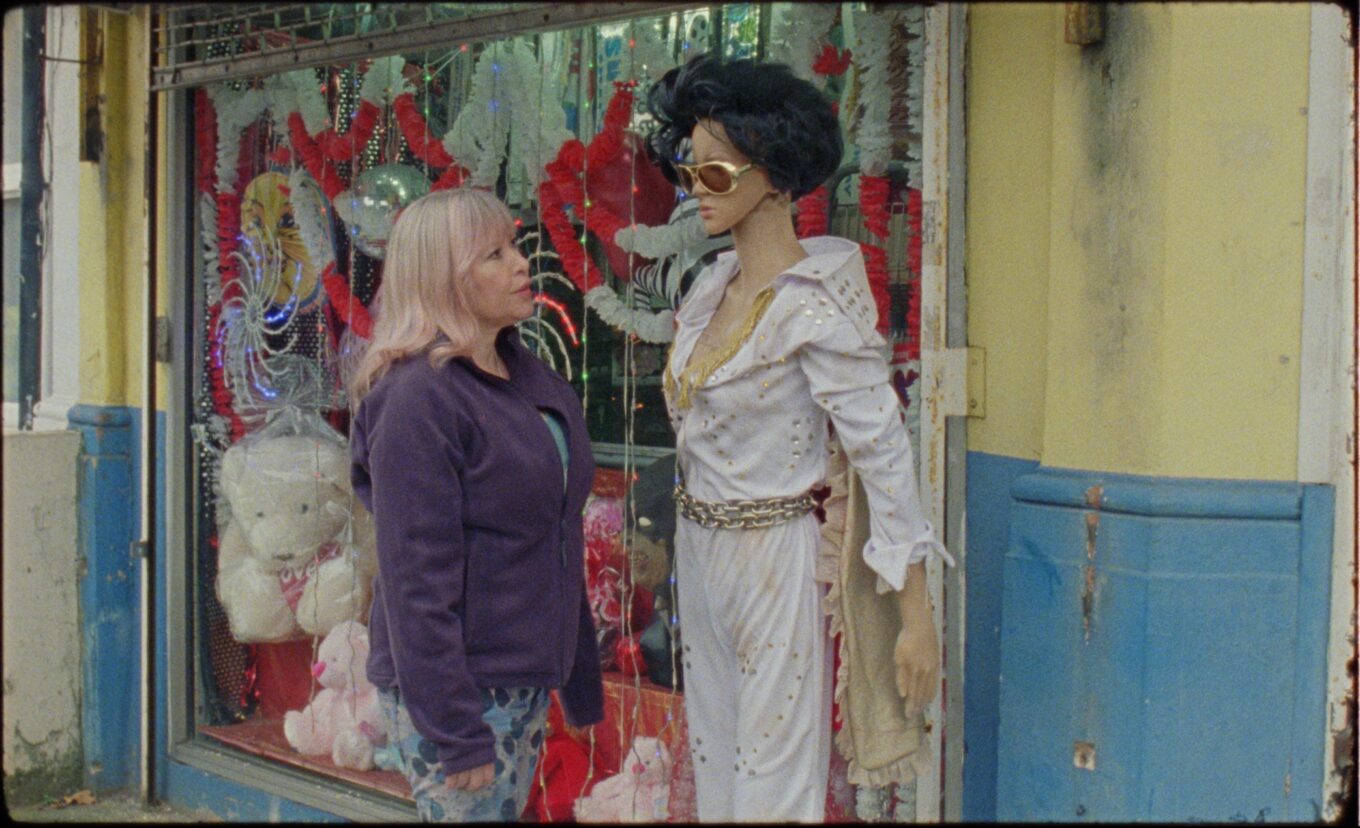NATALIA MOSQUERA reviews Leo Leigh’s debut feature, Sweet Sue (2023).
“It’s probably not everyone’s cup of tea, but I hope it’s yours”: this is the sentiment with which director Leo Leigh concluded the introduction to his debut feature Sweet Sue (2023). We meet Sue (Eastenders’ Maggie O’Neill), a party shop owner in her fifties, at an Italian restaurant. The camera is fixed on her back as her husband tells her over the phone that he is leaving her. Sue does not sit in cinematic, stoic silence. She gets drunk and calls him a wanker. The film that follows, with naturalistic camerawork nodding to the director’s background in documentary, is ostensibly an exploration of the divorce’s aftermath; yet the script does not follow the ‘Eat Pray Love’ beat one has come to expect of separation stories. Sue, as a protagonist, seems largely unconcerned with any notions of ‘processing’ heartbreak. Rather, she meets a semi-intellectual biker named Ron (Tony Pitts) at her brother’s funeral and spends much of the runtime dealing with his growing feelings of depression and his astrology-obsessed, dancer/influencer/sugar-baby son Anthony (Harry Trevaldwyn). Yes, you read that right.

Sweet Sue achieves a quality of ‘Britishness’ quite opposed to the Richard Curtis format; go to your local Spoons and you are sure to find one of Leigh’s characters sitting on a stool, ordering a pitcher. Sue’s London is not Somerset House and the Southbank; it is a land of party shops and care homes. This refutation of the overly romanticised runs throughout the narrative. The film is not without its lofty themes — death, grief, mental illness, love. But the lens remains remarkably equivocal. The pathos we might expect from a scene of loss is undercut by the image of a light-up Juul — ‘It’s my brother’s funeral. I want a vape.’ Similarly, a moment of true vulnerability is interrupted by a jarring cut and camera change to a 2014-style vlogging update which will make even the chronically online cringe. These moments of high contrast highlight how, in Sweet Sue, much like in real life, the profound, the mundane, the embarrassing, and everything in between, coexist.
These instances are also often incredibly funny, eliciting the kind of unexpected laughs which seem to burst right out of you at inappropriate times. The film’s humorous pulse is sustained even through striking moments of discomfort. In one, the camera lingers on Sue laughing. At first, the audience joins in joyously, raucously. But Sue does not stop. And the camera will not cut. As we watch Anthony’s face fall incrementally, laughter feels akin to cruelty. It is less enjoyable and far more interesting. Another comedic highlight, the relationship between Anthony and his sugar daddy (played in pathetic perfection by Jeff Rawle), takes a similar turn for the worse.
Indeed, ticking behind the film’s comedic vignettes and accompanied by its charmingly unstable, idiosyncratic score is a growing sense of breakdown and isolation; in an onstage Q&A Leigh described Sweet Sue as ‘a film about a lot of lonely people.’ Eventually, this manifests in an abrupt and pointedly inconclusive climax. I left the cinema with the sense that I had missed something, that Sue had walked out of my life as quickly as she does the people around her. The film leaves you with a mess that it refuses to clear up. Sweet Sue thus seems to be a film intent on demonstrating the ways in which life is not like film. Leigh’s anticipation of the film as a Marmite kind of affair may be warranted — it is a weird, often bleak, untidy work, offering little in the way of obvious meaning — and yet Sweet Sue, like the character herself, cannot help but endear itself to you.
Sweet Sue is out in cinemas on 22nd December.
Featured photo via IMDB.





